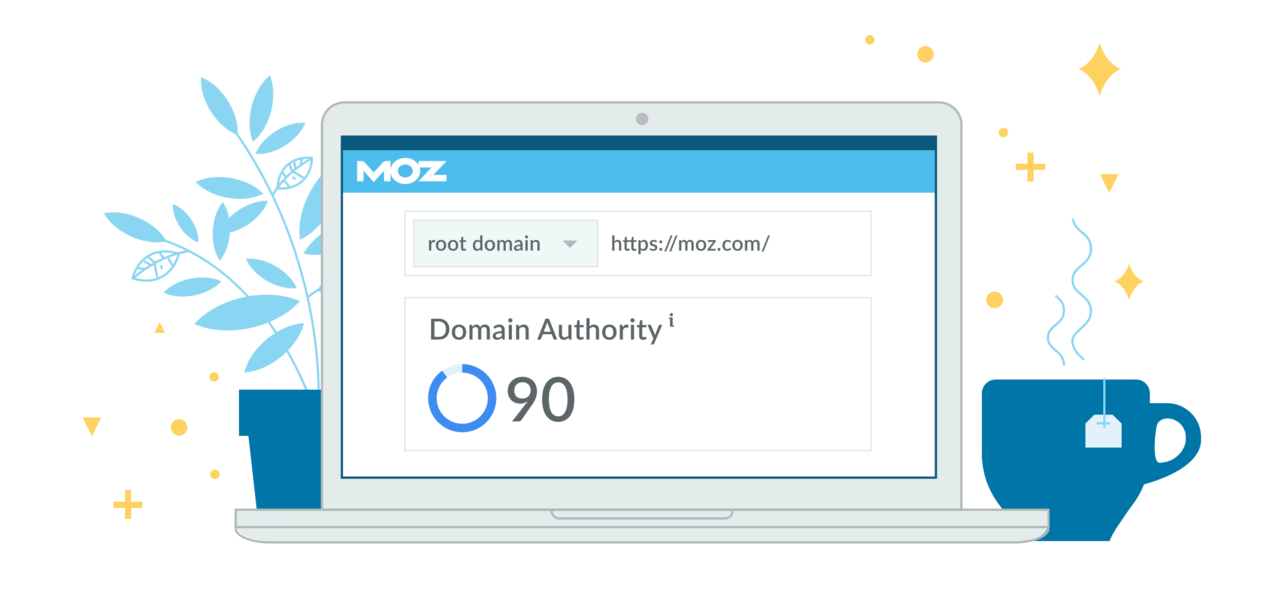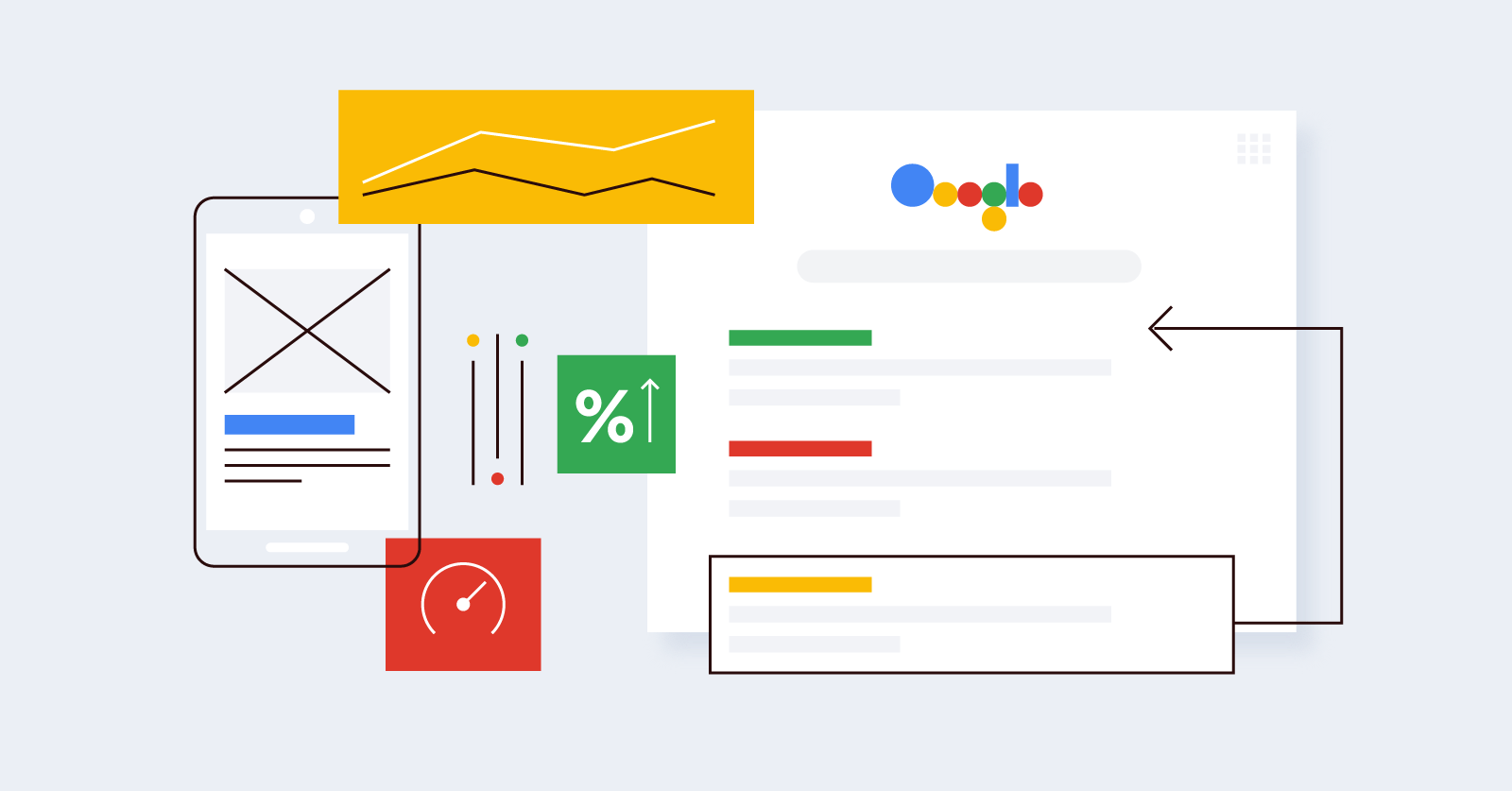Link building is akin to making contacts in the real world.
When you want to get something done or find relevant information regarding anything – there’s always someone you know who will get it done.
And why do you go for them? Because they are reliable, trustworthy, and wouldn’t waste your time. If you get this concept – you get link building.
Getting search engines to realise that your content is authoritative is crucial for search engine optimisation. Backlinking or link building ensures higher ranking, improved, and increased traffic.
Undoubtedly, link building has become increasingly popular and vital in the past few years. And to support this statement, I have the full support of Google’s upgraded link-building techniques.
Link building is a complex task that requires patience and critical thinking. Whether you’re clueless or looking for some tips to level up your game – I’m happy to help!
This guide will equip you with everything you must know about SEO link building.
Without further ado, let’s begin!
What Is Link Building?
Link building is getting other people (or, in this case, websites) to vouch for your content. It’s about procuring links from different websites to your own.
I know you might be confused about hyperlinking and link building; thus, allow me to break it down. A hyperlink is when you add a website’s link to your document or link pages in your own website (kind of like interlinking).
But link building is a different league.
Simply put, link building includes hyperlinks from other websites that link back to your website. Furthermore, suppose a well-known website links back to your content. In that case, there are better chances of and gaining popularity.
But what should you do to get featured on trusted websites to build your authority? Keep reading to find out.
Link Building Stats
I totally get it if you guys would want some proof or hardcore evidence to back up everything that I’ve written above. It’s only understandable to do so. Believe me when I tell you that 69% of marketers believe buying links boosts SEO, and it often costs them $1000!
Link building is a popular concept, and it’s taking the world by a storm as 42% of SEO professionals spend an equal amount of time developing internal and external links.
It’s understood that link building takes time, effort, and a lot of patience. So, if 41% of SEO experts consider link building the most challenging step in search engine optimisation – it’s some complex stuff we’re talking about.
But at the end of the day, it bears incredibly excellent results and ensures that your hard work pays off. And for that, if you need to get an expert on board, then you better do that because.
Obviously, you cannot expect authority websites to start linking your content when it’s not even discovered yet. Therefore, apart from link building, you should also work on improving the other components of website optimisation.
So, while it does take its sweet time, it’s not useless. Did you know that 94% of the world’s content doesn’t get external links? Thus, getting your website linked to a famous website would mean a job well done!
Therefore, start working on link building as soon as possible because links are considered one of the top two criteria in Google’s ranking algorithm.
Why Are Backlinks Important?
Well, I think the statistics spoke about the importance of backlinks themselves. But, if you’re still not convinced, it’s time for me to take over the reins.
After having the PageRank Algorithm abused by scammers, Google decided to do something.
In about 2012, by Google changed the rules of this game. Instead of judging the website’s quality by just its content, this algorithm focused on another component – the number of people linked to this page.
Eventually, link building secured its position as one of the three most essential ranking factors.
So, what does it do anyway? Why is it considered to be vital?
Well, link building helps Google decide if a particular page of your website is worth the user’s time or not. It also decides whether it should rank number 1 or number 100. So basically, link building determines the quality of your website more than any other factor involved in SEO.
It’s equivalent to getting letters of recommendation that, yes, this person is worth your time! Similarly, with websites – the higher the link building score, the better the credibility.
Now that you’re well aware of the importance of link building, the question that arises is – how does it help my website anyway? Basically, it makes sure that your website is of top quality.
But how does it do it? What are the elements involved that actually get you the desired result?
Allow me to shed some light on this matter. A better backlink profile instantly boosts your website, and this is how it does it:

To understand this pointer, let’s first familiarise ourselves with domain authority. In simple words, DA (short for domain authority) is a search engine ranking score. It’s a grade given to your website that gives Google an idea about how authoritative your website is.
was developed by Moz, and it focused on judging the strength of a website. In other words, DA is not a ranking factor, and it doesn’t affect the SERPs, but it does help in deciding which website is better than the other based on the DA score.
But how is it associated with backlinks? Well, it’s actually the number of relevant one-way backlinks that your site has received from other well-known websites. And the more relevant, authentic, and popular are the backlinks, the more score your website will get.
So, while DA doesn’t affect SEO ranking directly, it has an unintended effect. How so? A higher domain authority score means that your website has increased backlinks. And by now, it’s understood that a greater number of backlinks leads to better ranking.

When your website is online, even before it can be ranked by Google, it has to be crawled and indexed. Google rounds up all the crawlable information during these processes and indexes it or stores it to pull it up when needed.
Now, when the crawlers are crawling the web pages, they are not just looking at the information. But they are also assessing the number of backlinks and the popularity of those websites linking back to your website.
Therefore, the better the number and quality of the backlinks, the higher the page rankings!

If your website is being properly crawled and has a good domain authority, it’s understood that it will generate more traffic.
Increased traffic means that whatever you’re trying to communicate with the world, it’s being heard, seen, or acknowledged. So, whether it’s high-end advertising campaigns or simple blogging – the end goal is to attract the audience. This automatically results in improved business and spectacular outcomes.
After all, this is what you’re seeking, right?
4. Become the Authority
Now, wouldn’t you like to lead the industry?
It’s only natural to want to be the best player on the field, and link building can help you become one. With sustained link building, your brand can dominate quite easily because people will trust it.
The more traffic you draw, the easier it becomes to build links, and the more people. And this cycle will continuously repeat itself.
A win-win situation? Definitely.
5. Decreased Bouncing
According to Google, bounce rate is the number of times a user visited your page and then left without checking out the others. Of course, there could be many reasons for that, but let’s stick to links for the topic’s sake.
While low-quality content could be a reason, sometimes users leave because they find it challenging to navigate an article. For example, imagine that your post is 2000 or 5000 words long, and there are no internal or inbound links. Would it be easy for the user to find what they need? I don’t think so.
To understand this, let’s first talk about internal links. Inbound links take you from one webpage to another webpage of your website. They act as a shortcut and help the user navigate through the content.
Building internal links decrease bounce rates and. So, what’s stopping you from doing that?
6. Ensures Popularity
If you’re building links without doing anything shady, Google will love you! And trust me when I tell you this – if Google loves you, the world loves you.
So, what do I mean by that? Well, if you’re following the white hat SEO strategies in building links, then Google will give you a boost. Thus, you can gain popularity in your niche, eventually getting in the big boys’ league, i.e., your established competitors.
How to Do Link Building?
And now to probably the most awaited part of this entire post – how to do link building? How difficult is it to build links? How can you get links without falling victim to? I know, I know, there are a million questions in your head!
But don’t worry – I’ve got you covered. In this section, I’ll be going about, in quite some detail, everything that you must and mustn’t do for efficient link building.
Link building strategies usually follow any of the four techniques to get those backlinks:
Step #1: Add Links
Simply put, visiting a website, and incorporating your link there means adding links. And there are numerous ways to do that:
To understand how each of them works associated with “adding links,” let’s look at them individually.
Business Directories
Adding links to business directories can be either incredibly beneficial or completely useless. To ensure that you’re focusing on the good part, prevent yourself from adding links to every other directory. It’s just not worth it.
Instead, you can look for the ones with more traffic, better quality, and authority. Adding links to such business directories will definitely get the backlink boost you’re looking for. In addition, it would get you the that your webpage needs instead of exhausting your resources for nothing.
Social Media Presence
It’s 2022 – social media presence is everything!
It’s better to start marketing your content through any social media platform to generate a substantial following. Then, your followers, who adore your content and want to see you flourish, can get you that organic traffic you’re looking for.
However, since these backlinks don’t have much SEO value, you shouldn’t expect overnight success.
But that being said, being popular on social media platforms and having a doesn’t go to waste. Mainly because it’s a great way to promote your brand and get well-known websites to notice your content.
Creating Connections
Nothing is better than putting yourself out there and becoming friends with people who can help you get authority links. Another important way of adding backlinks to your website is by commenting on blogs and forums and establishing a connection with other website owners.
By doing so, you are subtly, but you’re also establishing a friendship that can significantly benefit you. However, if you’re doing that just to add a link, that’ll backfire – and that too really bad.
Blog owners will hate you, they wouldn’t want to consider your overly sweet remarks, and things will only go downhill. So, don’t do that. Nobody likes that.
However, adding links using these methods is not a difficult job, so Google doesn’t pay much attention to these backlinks. They are essential, no doubt, but if you can add a link to that website, what’s stopping your competitor from doing the same?
This defeats the entire purpose and lowers competitiveness. To understand your competition, you can look for tools that will aid you in knowing where your competitors’ backlinks are coming from.
Step #2: Buying Links
When talking about buying links, many factors must be considered because, boy, it is risky.
I mean, personally, I wouldn’t recommend you buy links. Because if Google finds out about it, they will issue a Manual Action against your website and ensure that all the money you used in purchasing those links has gone down the drain.
Yes, it’s THAT dangerous.
But there’s a difference in perspective, and I didn’t bring that difference; it was Google. Buying links and manipulating the algorithm doesn’t sit well with Google, but it never stops you from monetising your website.
It’s vital to understand that buying links for link building is black hat SEO, and you will get penalised. But, using the tag will inform Google that you’re acting in good faith. Therefore, it is highly recommended by Google to use this tag for all your paid links to avoid facing its wrath.
So, if you have decided to go for paid links for monetisation purposes, a few things should be kept in mind.
Let’s briefly discuss all of them for a better understanding.
What Is the DA Of the Website?
If you’re buying links, would you want to go for a website that isn’t trusted?
As discussed before, websites with a higher score have world-class backlinks. Thus, they get more organic traffic and rank higher than other websites.
Therefore, if you’re buying a link, evaluate the DA score of that particular website. To check the domain authority of any website, you can simply use MozBar, which is a free SEO tool for this very purpose. Or, in Keyword Explorer, you can find it under the SERP Analysis section – the choice is all yours!
Does the Website Seem Spammy?
You might need some tools to be sure of this, but let’s go with our basic instincts first.
A spammy website will look… spammy?
You’ll get that particular junk mail kind of vibe, and that’s the red flag that you’re looking for! However, it’s not advised to rely on your gut feeling. There are some other components as well.
The first thing would be to check out the content’s quality. If it’s not up to the mark and isn’t well put, then it’s probably spam. Furthermore, you can look for links pointing back to this particular website to check if it’s authentic or not.
And lastly, as mentioned before, some tools like the Google Chrome Plugin and can help you steer clear of these websites.
How Relevant Is the Website?
Again, how relevant does the website look? How many backlinks does it have? And what’s the quality of the content? Is the content related to the targeted audience, and what about the comments section?
To determine the relevancy of a website, multiple factors need your attention. Only after going through a website thoroughly should you decide whether to buy links or not.
So, to sum it up – would I advise buying links? No. Paid links usually violate, which may ruin the hard work that you put into building your website.
A few other details that come under the “must-not-ignore-at-all” category are the following:
The Link’s Anchor Text
OK, so I’m going to say this once – don’t try to fiddle with the anchor text too much.
Anchor text is the snippet of the link you inserted in your content. It merely shows what the inserted link is about as an attempt to make a connection with the article. While using the anchor text that makes sense to your audience is important, I wouldn’t recommend you meddle with it too much.
Don’t try to precisely mould anchor texts because Google will penalise you for that.
The Position of The Link
Link placement is essential, and I’d suggest you pay attention to it.
I won’t go into much detail about link placement in this section, but I will definitely give you an overview for things to make sense at this stage. The higher the link’s position, the better chances of it being crawled.
Apart from this, Google also recognises links placed in the upper section of the webpage as necessary. So, you get what this means, right? Link positioning is a crucial factor in link building, and it must be taken as one so.
Does Something Indicate This Is Sponsored/Paid Content?
As discussed above, certain tags indicate sponsored/paid content. Google is OK with you. The only thing Google isn’t OK with is buying links. So, make sure that you are friends with Google if you want your business to flourish.
Step #3: Ask for Links
Moving onto the next step of link building – asking for links.
Asking for links doesn’t feel like too much, right? Wrong!
In my opinion, asking for links is the most challenging of all the steps mentioned in this section. Why? Because most of the time you’re not good enough! Either your content isn’t compelling, or they simply aren’t interested.
So, what can you do to get links without feeling like a beggar? Well, there are a few strategies that you can employ to get the ball rolling, and I’ll help break them down for you.
Guest Blogging
To get a website to give you a link, the most common way is to write guest posts for them. You can either hire an excellent writer or reveal your mind-blowing writing skills to accomplish this mission.
The Skyscraper Technique
Another way of asking for links is using the skyscraper technique by Brian Dean of Backlinko. Basically, you go through their content and locate all the links. Then, you visit those links and see if there’s a better resource that can be offered to them instead of the one they’re currently linking to.
Look for Outdated Articles
If you scour their website and come across outdated information – this is your chance to shine! Writing a brand-new piece with flair and updated information is yet another way of getting such websites to link with yours.
Exchanging Links
Or commonly known as link inserts, it can also be used to spark the interest of various websites. You simply have to get them to insert their links to one of your articles if it has covered that specific topic in great detail. This will help their website link building and strengthen your relationship with them.
Talk Them Up
How do you catch a fish? By using bait.
You can use this technique to get other website owners to invest in your business. You can search for something similar between the two brands.
Discuss the website owner in one of your articles – either talking about their products or personal traits that have inspired you. Rest assured, you will have their attention.
Build Broken Links
Benefitting over someone’s weakness is genuinely the best way to get them to cooperate.
OK, that was a little too evil.
But broken links are a nuisance for everyone! If there’s a broken link, such well-known websites would want them gone instantly. So, they’ll probably owe you one if you help them fix a dead link on their website.
And how do you fix that? Simple, by proposing a link that points back to your website!
Step #4: Create Link-Worthy Content
Although it is the last step in this section, it’s equally essential as the others.
Earning links is probably the most effective way of getting them. Why? Because you don’t have to ask or buy links – your content is outstanding and worth mentioning, so you automatically get them.
However, generating such type of content is not an easy task. It requires a lot of effort and proper promotion to get the authority and reach. Having a team of professionals who closely look after the content creation is indeed a good investment. It may boost your “link-earning campaign.”
Here are some types of content that usually attract more links:
Creating content that is easy to read, credible, backed by facts, and relatable will obviously earn you multiple links. But it will take its sweet time and a lot of effort before bearing the fruit.
So, the question is – will you be willing to work for this or rely on shortcuts? I’ll leave this one for you to decide.
More Link Building Tips
Now that you know the importance of the link-building process, the cherry comes on top.
I know that you’re aware of how to get links and what is the right way, but still,
In this section, we’ll be covering the tips and tricks that you can use to build efficient links and, in response, generate spectacular results!
Relevancy First
In a world full of irrelevant and senseless content – please, make sense.
I don’t mean to sound rude, but link building is only possible if you have a straightforward and mindful approach. Now, what do I mean by that? Simply put, create something that people would actually want to relate to.
For example, infographics, charts, expert interviews, and formulating guides act as link-building boosters. Because they are visually attractive and provide all the information you want in one glance. If you’ve done a good job creating such content, it will automatically allow efficient link building.
Now that you have this let’s talk about relevancy. Let’s say that your website is about skincare, but the backlinks are about pets. Would it leave a good impression on the user or completely blow their brains out? I think the latter makes more sense.
Therefore, it is incredibly vital to make sure that you’re linking with relevant websites that will boost the credibility of your website instead of trashing it.
Outreach Emails, Please
What’s the best way of making sure that someone received your message? Write them an outreach email.
Outreach emails are essential in providing people with a close-up view of your content. This technique ensures that the receiver understands the content you’re trying to promote.
However, just simply asking for a link would definitely be ignored. You want them to know that your content is worth it.
So, the best approach would be to craft a clever email that doesn’t sell your item but does so too. Moreover, adding an excerpt of your content would also give them an idea of how valuable and worthy it is of the link you’re seeking.
Establish Loyal Communities
Becoming a part of communities related to your industry is another efficient way to get more traffic. However, you cannot just start promoting your content right after joining one. Literally, no one will heed it, and they may even dislike you for doing that.
Therefore, it’s important to interact and build a relationship before you try to promote your content. Get to know as many members as you can, learn about their products and form a connection. By doing so, you’ll earn their trust and attract organic traffic.
But don’t do this just getting links. Like I’ve said before, it’s not a good approach. Instead, be genuinely invested so that your results are genuine too!
Advertise, Advertise & Advertise!
What are you even doing in the name of content promotion, if not advertising?
Sure, promoting content through ads is expensive, and there’s no guarantee that you’ll be getting the same results as you expect. However, the purpose of advertisements is to attract an audience, inform people of what they don’t know, and build a following.
There are incredibly slim chances of your content standing out in an already stuffed market without proper advertising strategies. Therefore, investing in this area is a vital factor.
Furthermore, ensuring that the “word did get out” makes it easier for you to build links. Then, whether it is asking or earning, people would be aware of your content and be willing to invest. Who would want to invest in a brand nobody knows about?
Research Your Competitors’ Links
Another way to stay on top of this link-building fiasco is to research your competitors’ links. But I am sure you’ll wonder how that will help my business?
Like the saying goes – keep your friends close and your enemies closer.
If you want to know what you’re doing right and where you lack, the best way to assess that is to learn more about your competitors’ approaches. What are they doing? What are they missing out on? Is there anything that makes them better than you? How are they marketing their content?
When you start to ask these questions and then adjust your strategy accordingly – that’s when you get results. In link building, too, knowing how your competitors are going about building links will undoubtedly help you gain some perspective.
By paying attention to their techniques and learning about their links, you’ll be able to understand the recipe for ranking better on Google.
Pay Attention to Link Placement
One of the most overlooked SEO strategies is link placement. It simply refers to the position of a link in your content. Questions such as how link placement affects link building and where you should ideally place the links are some of the recurring queries that I’ll be happy to address.
Firstly, make sure that the anchor text is relevant. It’s precise and points towards the content you are linking to. Randomly picking up an anchor text without giving it much thought is not an excellent way to build links. However, as discussed above – don’t be too careful.
Secondly, there’s no best or worst link placement.
However, since Google crawls from top to bottom, it is advisable to place your links in the upper body or header of the content.
And, as you’ve probably guessed by now, the worst or least favourite place to place links would be at the foot or lower body of the webpage. It’s not like Google wouldn’t crawl it – but it will not be as efficient as before.
Another way to gracefully incorporate links is to place them in the body of the content. However, it’s incredibly essential to “make sense” in this regard because if it doesn’t, it’ll just divert the user’s attention.
Optimal link placement ensures improved crawling, better indexing, and thus a higher ranking of your webpage. It sounds like a win-win deal to me, doesn’t it?
Understanding No Follow and Follow Links
Follow or “do follow” links are the ones that need attention. They are the backlinks that are supposed to be crawled by Google and drive traffic to your webpage. Instead, the crawlers go through these links, check their popularity, and indirectly boost SEO rankings.
However, the mystery behind the “” links concept is challenging to crack.
These are the links that don’t boost SEO rankings, do not earn points for credibility, and do not contribute to the link juice as well. In addition, no-follow links ensure that Google doesn’t crawl these links.
They look similar to the follow links, and when clicked upon, open relevant pages as well. The only difference that you might see is in the HTML tag.
However, that doesn’t mean they don’t have any benefits. Nofollow links help drive. They also prove helpful in combating SEO black hat strategies and preventing spamming. Having no-follow links allows Google to crawl the top priority link and avoid filler content that wouldn’t attract the audience.
Well, that’s all about link building that you must know before diving into this crazy world.
However, not everything depends on link building. It is a crucial component of search engine optimisation, but it’s not everything.
Therefore, it wouldn’t be wise to stuff your content with links. As I’ve mentioned before, even deciding which part of your content can be linked is quite technical. Thus, it’s understood that link building is complex and overdoing it would decrease your website’s quality.
Thus, rushing this entire process or going for shortcuts may benefit you in the short term but don’t expect any long-term perks. Instead, try to understand the concept, get professional help, or discuss it with SEO experts to ensure that you’re doing it right.
Because once you’ve gotten the hang of link building, it sets the tone of your business. You are deemed a credible resource, sharing the best of the best with its targeted audience. Isn’t this what website owners really want?
I hope this guide answered your queries and provided you with a better understanding of this topic.
Happy Link-Building!
This content was originally published here.




